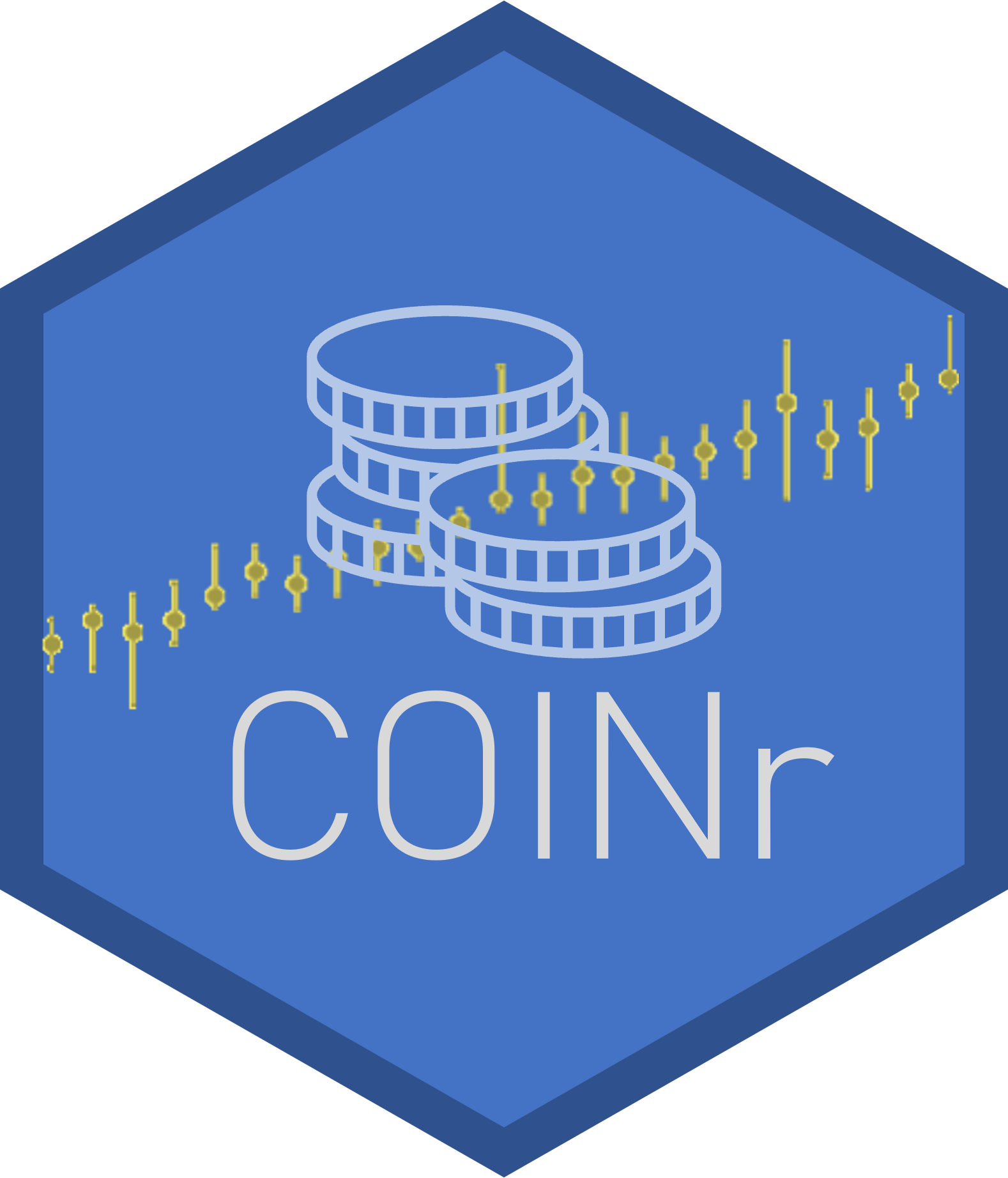Full documentation is available at COINr’s website
COINr is a high-level R package which offers a fully-flexible development and analysis environment for composite indicators and scoreboards. It is inspired by, and broadly follows the methodology of the JRC/OECD Handbook on Composite Indicators and the Competence Centre for Composite Indicators and Scoreboards, which also supported the development of the package (see Acknowledgements).
The main features can be summarised as features for building, features for analysis and features for visualisation and presentation.
Building features:
- Flexible and fast development of composite indicators with no limits on aggregation levels, numbers of indicators, highly flexible set of methodological choices.
- Denomination by other indicators
- Screening units by data requirements
- Imputation of missing data, by a variety of methods
- Data treatment using Winsorisation and nonlinear transformations
- Normalisation (scaling) using a variety of methods
- Weighting using either manual weighting, PCA weights or correlation-optimised weights.
- Aggregation of indicators using a variety of methods which can be different for each aggregation level.
Analysis features:
- Detailed indicator statistics, and data availability within aggregation groups
- Multivariate analysis, including quick functions for PCA, and a detailed correlation analysis and visualisation
- Easy “what if” analysis - very quickly checking the effects of adding and removing indicators, changing weights, methodological variations
- Full global uncertainty and sensitivity analysis which can check the impacts of uncertainties in weighting and many methodological choices
Visualisation and presentation:
- Statistical plots of indicators - histograms, violin plots, dot plots, scatter plots and more
- Bar charts, stacked bar charts and tables for presenting indicator data and making comparisons between units
- Correlation plots for visualising correlations between indicators and between aggregation levels
COINr also allows fast import from the COIN Tool and fast export to Excel.
Installation
COINr is on CRAN and can be installed by running:
# Install released version from CRAN
install.packages("COINr")The development version, which may be slightly more up-to-date, can be installed from GitHub:
# Install development version from GitHub
devtools::install_github("bluefoxr/COINr")This should directly install the package from Github, without any other steps. You may be asked to update packages. This might not be strictly necessary, so you can also try skipping this step.
Getting started
COINr needs a little reading and learning to understand properly. But once you have done that, it can be very powerful for developing composite indicators.
A good place to get started is COINr’s “Overview” vignette. Try vignette("overview").
The most thorough documentation is available at COINr’s website (developed using pkgdown). This contains all package documentation in an easy-to-navigate format. All documentation available here is also available by browsing COINr vignettes: see vignette(package = "COINr").
Tutorials
COINr was presented at the European Commission’s training week on composite indicators and scoreboards in September 2023, including a short one hour tutorial:
- See the presentation video here (COINr presentation starts around 16:28 but if you are new to composite indicators it is well worth following the full training)
- See the tutorial document here and the code in the GitHub repo here.
Recent updates
COINr has been recently updated to v1.0, skipping a few version numbers. This has brought in many new features, some discarded features, less dependencies and more robust underlying code. The syntax has also been changed to make the package more consistent. See vignette("v1") to learn about these changes if you were using COINr prior to v1.0.
COINr documentation was previously contained in an online book. This is still available, and although the principles of composite indicators there are still all valid, the code refers strictly to COINr < v.1.0.
If you prefer to roll back to the old COINr, you can still install it as a separate package called “COINr6”. This is available on GitHub:
remotes::install_github("bluefoxr/COINr6")Help and issues
For general help with COINr, the best place to look is the package’s documentation which is available either via the command line (vignette(package = "COINr")) or by checking individual function documentation (?function_name). All documentation is also conveniently available online at COINr’s website.
If you find any problems with the package, including bugs or suggestions, either open a GitHub issue here, or else contact me by email.
Finally, contributions to the package are most welcome. This should be done by cloning the repo, making your modifications, and then opening a pull request. You could also contact me in advance to discuss changes and extensions. Any changes (especially new functions) should be accompanied by unit tests, and all existing tests should run without errors or warnings. To do this, run:
devtools::test()Citing COINr
If you have found COINr helpful, we are grateful if you cite the package. COINr is citable by a paper in the Journal of Open Source Software which you can find here (with citation information).
In R you can also generate the citation info using citation(package = "COINr"), or see the same info on the COINr web page.
Acknowledgements
COINr was initially developed under contract for the European Commission’s Joint Research Centre until 2021, and this enabled the bulk of the initial development, as well as many helpful discussions with colleagues from the Competence Centre for Composite Indicators and Scoreboards, and this is gratefully acknowledged. Since then, the package has been continuously modified and improved while working on other projects and following user feedback.
